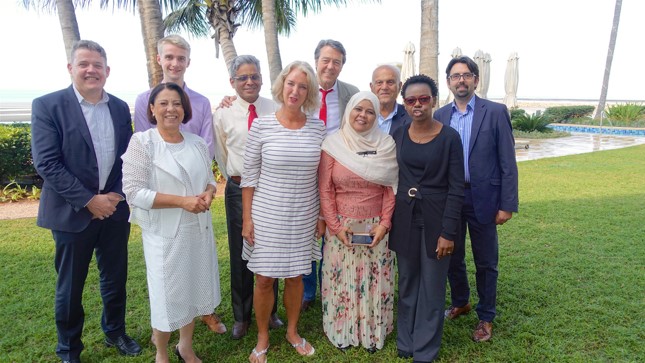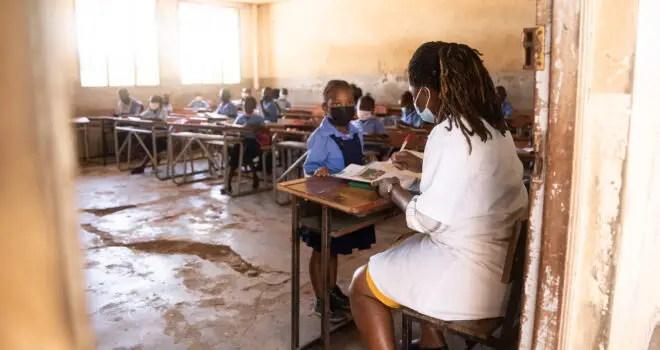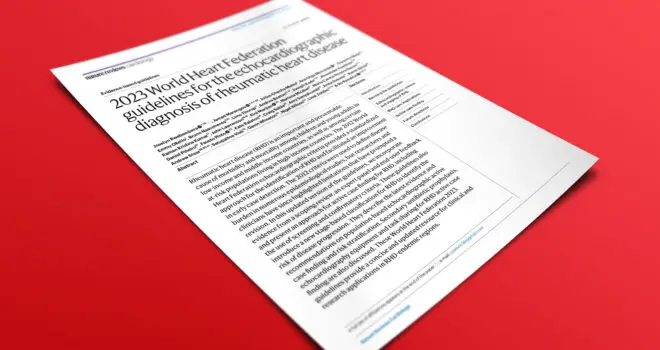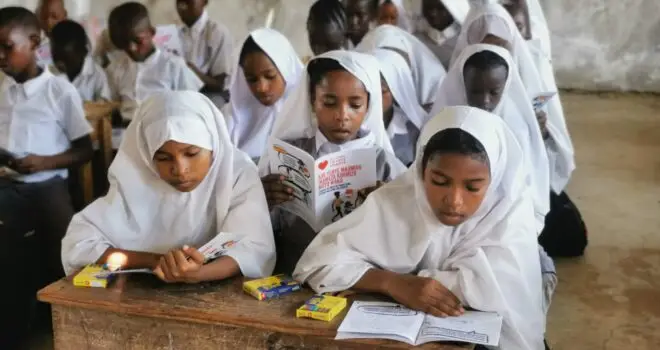
In 2017, the World Heart Federation contacted our global membership to ask for their input and comments on the role of WHF in the prevention, control and elimination of Rheumatic Fever (RF) and (RHD) following the adoption of the Resolution. In response to Member feedback on priority activities, a WHF RHD Taskforce was established to take targeted actions to contribute to the implementation of the Resolution.
The three priority areas (and Working Groups to focus on these areas) identified were:
- Policy & Advocacy
- Prevention, Control and Medical Management
- Access to Cardiac Surgery for RHD
The Taskforce Working Group leads convened for the first time in on 13 June in Maputo, Mozambique, in a meeting led by the Chair of the RHD Taskforce, WHF President-Elect Prof. Karen Sliwa.
The meeting was structured around three presentations on the three focus areas; the Policy & Advocacy Working Group (led by Professor Krishna Kumar, Amrita Institute of Medical Sciences, Professor Anita Saxena, All India Institute of Medical Sciences, and Professor Cleonice de Mota, Federal University of Minas Gerais) focused on the global shortfall of BPG, the essential antibiotic for primary and secondary prophylaxis for rheumatic fever and RHD. Discussions also focused on the reluctance of many patients to receive injections and health workers to administer BPG. Participants agreed that two initiatives should be prioritized:
- Convene relevant stakeholders from different sectors to improve the global supply on BPG
- Engage with researchers and other partners to explore improved formulations of BPG
The presentation for the Working Group for Prevention, Control and Medical Management (led by Professor Sulafa Ali, Sudan Heart Institute and Professor Ana Mocumbi, National Health Institute and Eduardo Mondlane University, Mozambique) focused on the need to implement demonstration sites showing feasibility of RHD control programmes, and to increase the capacity of health workers to diagnose and treat patients.
In the context of the emphasis of the RHD Resolution on engaging the maternal & child health community and allied health workers, participants agreed that this Working Group should focus on two areas:
- Support a demonstration site for RHD detection among pregnant women in primary health care centres
- Support the development of training programmes with clear RHD treatment algorithms for non-physician health workers
Professor Peter Zilla (University of Cape Town) delivered a presentation on Global Access to Cardiac Surgery in which he noted that there is limited access to heart valve surgery for the majority of people around the world, emphasizing the importance of training cardiac surgeons and other specialized caregivers at centres in low- and middle-income countries to build capacity.
He highlighted The Cape Town Declaration on Access to Cardiac Surgery in the Developing World, which urges “all relevant entities within the international cardiac surgery, industry and government sectors to commit to develop and implement an effective strategy to address the scourge of rheumatic heart disease in the developing world through increased access to life-saving cardiac surgery.” Participants agreed to prioritize a number of actions in support of this Declaration:
- Highlight and disseminate the forthcoming publication of the Declaration
- Publish estimates indicating the Global Unmet Needs in Cardiac Surgery
Next Steps
The next meeting of the World Heart Federation RHD Taskforce will be at the European Society of Cardiology Congress in Munich from 9-11am on Sunday 26 August; please email [email protected] if you would be interested to attend. We look forward to working with our Member organizations and other partners in the RHD community to develop our projects further and begin to translate the Resolution’s policies into action.


